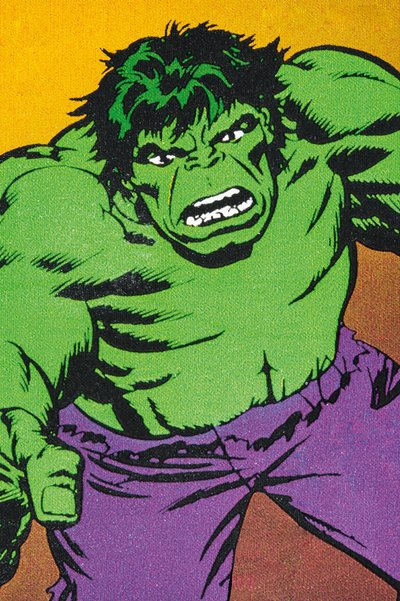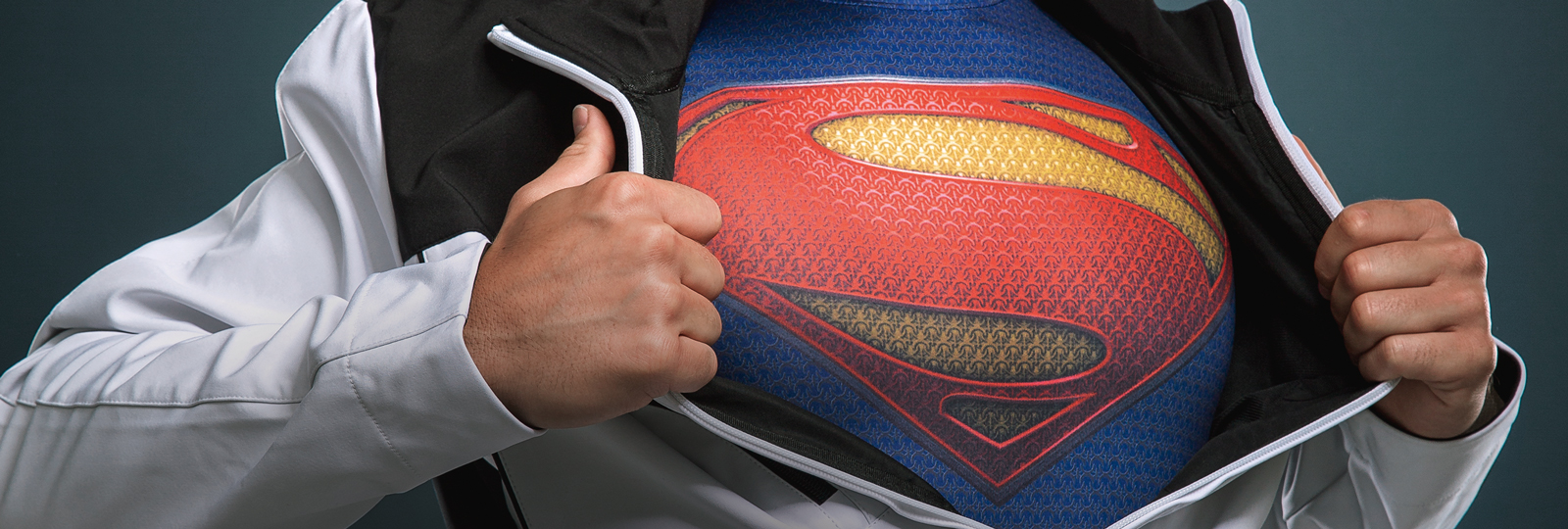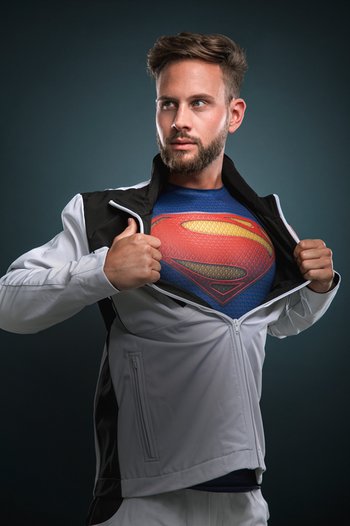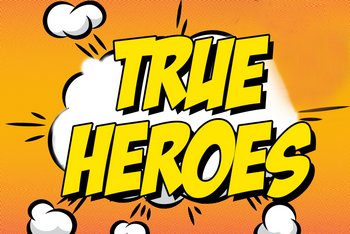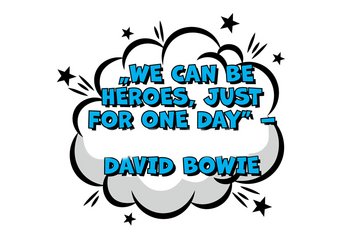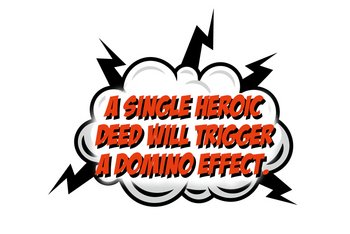True heroes
Fotos: istock, Shutterstock (Alhivik, Vector Pot, Zach Nelson)
This article appeared in MarktImpulse 3/19
Order the print edition by emailing kontakt@brillux.de
When under pressure, they paint almost the speed of light, using high-tech tools and deploying their equipment with pure muscle power. Painters develop real superpowers to make the impossible possible on construction sites.
Okay. We admit it. Directly comparing people with comic book heroes such as Batman, Wonder Woman, Flash and Hulk might seem like a bit of an exaggeration at first glimpse. At the end of the day, these people have superhuman abilities, an exaggerated body, almost exclusively noble character traits, and have little or no vulnerabilities.
In short, they’re over the top. Here we cannot – and don’t – aim to keep up. These types should serve as much more than a tongue-in-cheek counterpart for the true heroes of a construction site: The painters.
That’s because they repeatedly demonstrate real super powers, for example in the construction of a new-build residential complex. In projects of this size, the other tradespeople are under real pressure to complete, and the painters only come into play at the last second once the others’ have completed their work.
Then the responsibility falls on them. They have to clean up consistently and methodically, make good lost time, and ensure that the future residents feel at home in their new four walls, using their expertise and sophisticated and innovative materials to do so.
So we think that, for this alone, they deserve the status of "workplace heroes". But even outside of work, many go above and beyond.
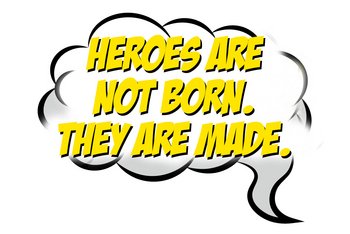
Patience and opportunity
No matter whether a tradesperson, banker, school child, farmer, stay-at-home parent or pensioner, we can all can suddenly become heroes. We just don’t know it yet. The skills to achieve this lie deep inside us. They are only brought to life when we urgently need them.
And that’s just what happened to a painter in Nordhausen (Thüringen), who suddenly became a super hero. He saw smoke coming out of an apartment on the way to work, threw a blanket over his head, ran into the burning house, saved a one-year-old girl from her playpen and carried her out into the open.
Or two tradesmen from Hamburg-Harburg, who, thanks to their boss, were also able to save a mother and her child from another burning house. These guys were heroes in waiting, without even knowing it. And what unites the three? They were faced with the opportunity to grow and act heroically, because the two decisive factors of heroism occurred at once.
First, they were faced with the – usually unique – opportunity to be the hero in the first place, and second, they rose to the challenge heartily.
Batman
Just like Batman, to be a qualified painter, a great deal of strength and resilience is required, along with tough training, intelligence, and a sound education.
What both also have in common is that they are both sensible characters and wear a belt with all the necessary secret weapons
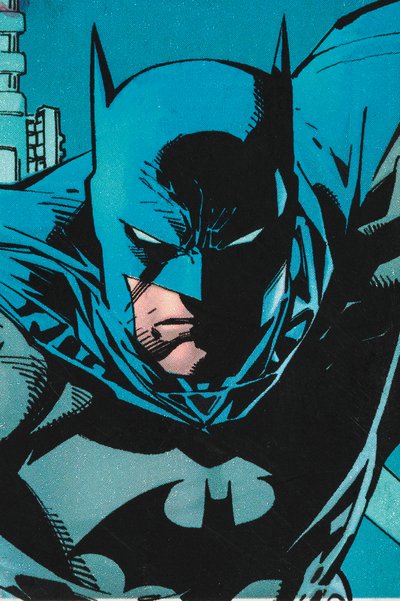
Anyone can do that
Luckily, no complicated instructions are needed to do something heroic. Anyone is capable of doing something like this in our society, social psychologist Philip Zimbardo is sure of that. Only one thing is really necessary. A person needs to be willing to act in the interests of others. After the US scientist spent decades studying ‘evil’, he has now spent some years researching the psychology of heroism.
Zimbardo gained notoriety in 1971 following the Stanford Prison experiment, where he demonstrated the banality of evil. He recreated a prison situation and randomly assigned 24 students either the role of warden or prisoner. Within a matter of days, the wardens became sadistic and tormented the undeserving "inmates". Today he undertakes research into the banality of goodness at the Greater Good Science Center in the University of Berkeley (USA) with his colleague Zeno Franco. His aim is to demonstrate that, not only do we all have the capacity to be evil, but that we all also have the ability to be a potential hero.
Even if we don’t have the abilities of Superman or Wonder Woman. When speaking across the globe and describing the overwhelming capabilities of comic figures, Zimbardo and Franco are more than happy to destroy the distorted image we have of these supernatural heroes. The two scientists take a simple approach. No one is born to be a hero, but we are also not trained or chosen to do so – we simply are. This means we all have the same opportunity; the courageous, the extroverted and loud, as well as the quiet, careful, and shy.
Flash
"Now things are really moving quickly", "We wanted this finished yesterday", "We want to move in tomorrow" – sentences like this don’t ever surprise painters.
Working in rapid motion? No problem. When required, a painter can flit over a construction site as fast as lightning. A team of painters often enough achieves the impossible in the shortest period of time.
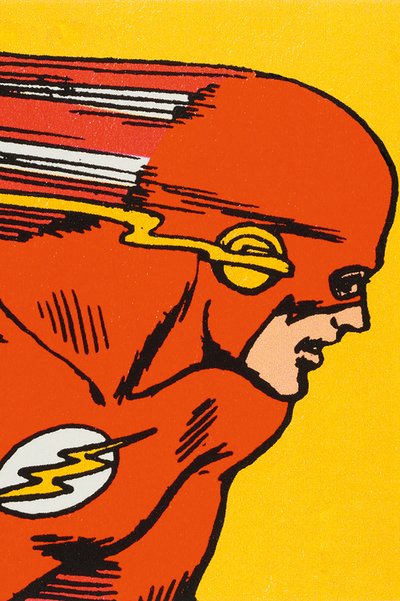
Programmed to be a hero
Zimbardo is convinced that if we consider heroism simply as part of human nature and not as a rare trait of the chosen few, then we can encourage heroic acts in any society. So if that moment arises before us, when we can help someone or do something, then that is when that all-important question arises – do we act or do we look away?
To encourage the first response, Zimbardo reminds us that a hero is above all, one thing – just a person. The aim of his program is to help children to become helpful, empathetic people.
So he set about developing a special training program for us, to help us become heroes: The "Heroic Imagination Project". It is based on role play and ideas – and simple repetition. According to Zimbardo, those who show the spirit to act heroically in different situations have simply programmed their brains to do so and are mentally better prepared for this moment.
It’s just about getting started. One simple heroic act can trigger a domino effect in our society. Philip Zimbardo’s program is the best example of this. There are now spin-offs in Poland, Iran, Italy and Germany, with Austria set to follow suit soon. Helping others to overcome situations rubs off, as Zimbardo’s studies prove. If people are quick to attend to the needs of others, then in many cases, they have needed this help themselves.
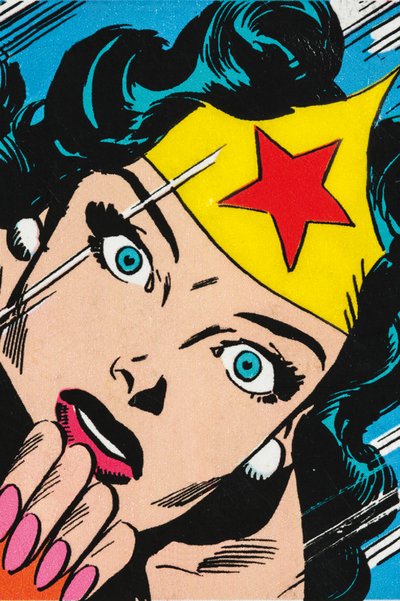
Wonder Woman
She was the radical counterpart to the traditional "damsel-in-distress", which dominated the world of comics in the 1940s. She was the first to not only be attractive but also self-aware and strong.
Now almost every painting company has someone just like her. She’s strong enough stand up to others yet empathetic enough to deal with even difficult customers professionally.
Heroes – please sign in!
There are very few of us who can claim to be heroes our entire lives; perhaps Gandhi and Mother Teresa. And their whole lives were oriented around this calling. We can become heroes by doing something heroic in a certain moment or integrate a longer-term project such as volunteer work into our lives. In Germany, these things happen every day and everywhere; many people do good deeds. Many do them without ever mentioning it. Yet for Philip Zimbardo’s vision, this humility also represents a problem. If deeds remain undiscovered, the domino effect of good is muted. Heroes should be and must be seen.
For this reason, the University of Passau is working together with a local paper to create an online database Local heroes to put a face to our everyday heroes across all of Germany. People are represented on this platform who show special commitment to a cause or who have undertaken rescues. All the data is provided for educational projects.
This aims to inspire children, young people and teachers to search for local heroes in their own areas. The idea has caught on; the database is growing rapidly, and new stories are added every day. So who needs Batman and Hulk? We have our own, real superheroes.
Hulk
Strong and assertive – painters share the same characteristics as the green muscle man. In addition to expertise and that all-important feel for things, painters often need to be strong enough to finish a job on site.
Hours of marbling, taping or painting ceilings is not for weaklings. But no painter looks quite as terrifying as the Hulk
